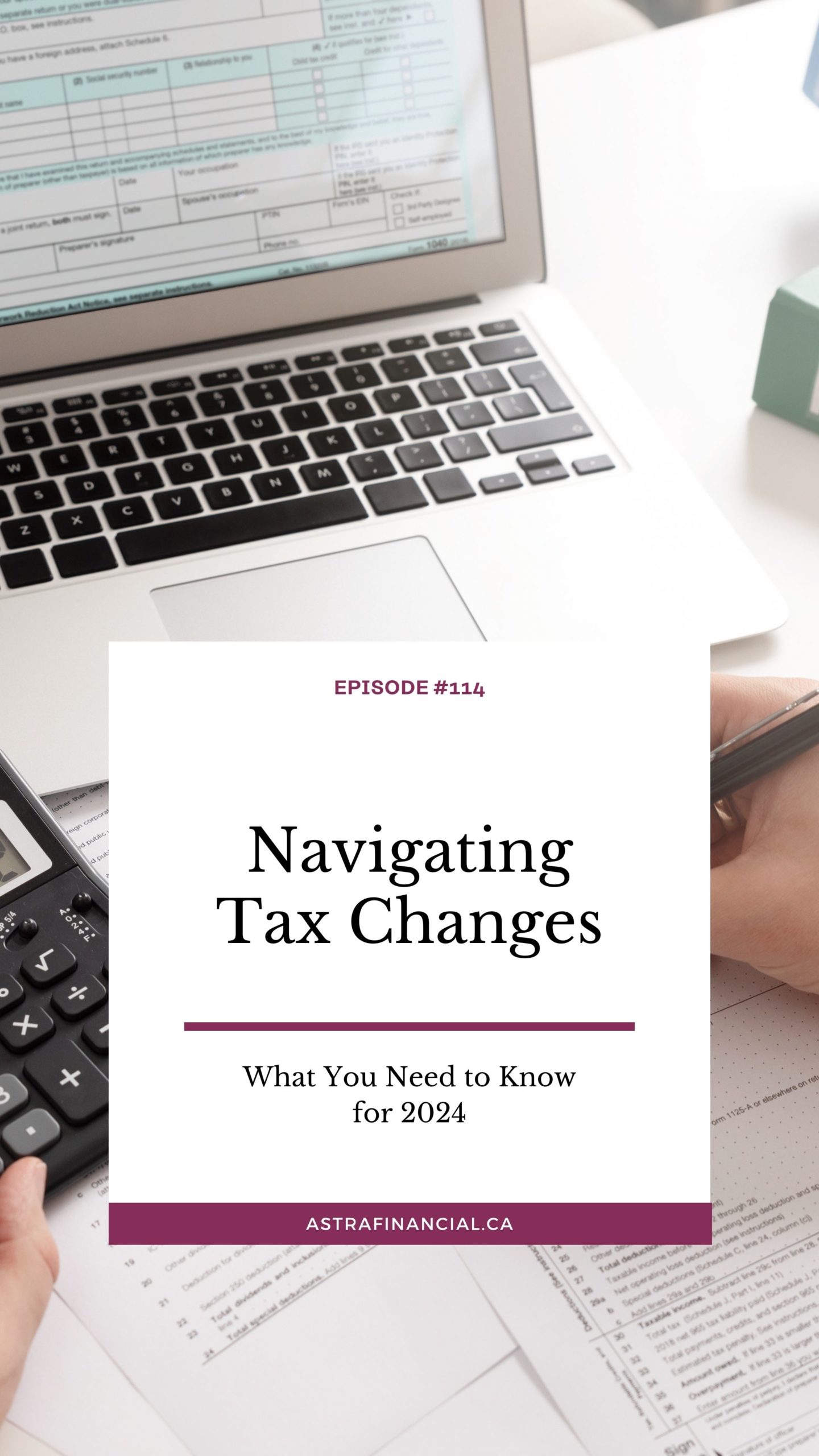Navigating Tax Changes: What You Need to Know for 2024

Elevate your tax game with my latest podcast! Today’s episode is dedicated to tax season. Learn my top tips on navigating recent updates, including …
🌟 Discovering the power of disclosure in trust arrangements, ensuring CRA compliance and penalty avoidance. 📝 Traversing the 2023 home office expense changes – meet criteria, keep docs handy!
💼 Exploring the CRA’s recent 10% interest charge hike; timely payments save you from hefty fines.
🚨 Stay informed, be proactive – these tax insights are your guide to smooth financial sailing! Dive into tax insights today for savvy financial planning ahead!
Show Notes:
Welcome back to another episode. Today, I’ll share several tax items you’ll need to know when filing your 2023 taxes. There has been considerable discussion in our office regarding the new inquiries your accountant is making, which the CRA is keen on knowing about. You might receive a checklist from your accountant, including questions you’ve never encountered before.
CRA now mandates tax filings for certain trust arrangements, specifically bare trusts. I understand the topic might not be riveting, but bear with me; it could be relevant to you. A bare trust occurs when one person holds legal title to an asset without controlling rights, while another person, the true owner, exercises control and enjoys its benefits.
For example, a parent or grandparent might hold a bank or investment account in trust for a child, a common legacy arrangement. Similarly, a parent might be listed on a child’s home title to facilitate mortgage acquisition, constituting a bare trust arrangement. Likewise, one spouse or partner might hold title to a property, while the other is the beneficial owner, a situation warranting clarification with your accountant.
Other scenarios include being a joint account holder for estate planning purposes, such as assisting with administrative tasks after a parent’s passing, or jointly owning a parent’s home to avoid probate. It’s essential to report these arrangements to your accountant, even if you’re uncertain whether they apply to you.
So, if you’re unsure or suspect it applies to you, it’s wise to verify with your accountant.
Currently, there are no immediate tax consequences for these arrangements, but the CRA requires you to report them. It’s important to note that disclosing this information doesn’t necessarily mean you’ll owe taxes right away or that anything will change immediately, but it’s information the CRA wants to have on record.
Now, let’s delve into another significant tax item: the home office expense deduction. This has undergone changes compared to last year. Recently, the CRA clarified that if you entered into a voluntary work-from-home arrangement with your employer, the agency will consider you as having been required to work from home for tax purposes. Essentially, for 2023, you can claim deductions for your home office expenses if your home workspace was where you primarily performed your employment duties for a period of at least four consecutive weeks, accounting for more than 50 percent of your working time.
This differs from the COVID era, where a simple declaration of working from home was sufficient for the deduction. Now, there are specific criteria to meet. For instance, if you have a hybrid work arrangement and spend more than 50 percent of your working time at home, you qualify for the deduction, even if your workspace is a designated room or a common area like your kitchen table.
Remember, you need a signed CRA form from your employer to support your claim, although you don’t have to submit it with your tax return. However, it’s crucial to keep it on hand in case of audits.
Lastly, there’s a significant update regarding overdue tax interest charges. The CRA has increased the interest rate on overdue taxes to 10 percent for the first half of 2024, and this rate will persist into the second quarter. This marks the highest interest rate on overdue taxes in two decades, emphasizing the importance of timely tax payments.
Stay informed and ensure you meet your tax obligations promptly. That wraps it up for this week. Take care until next time!

